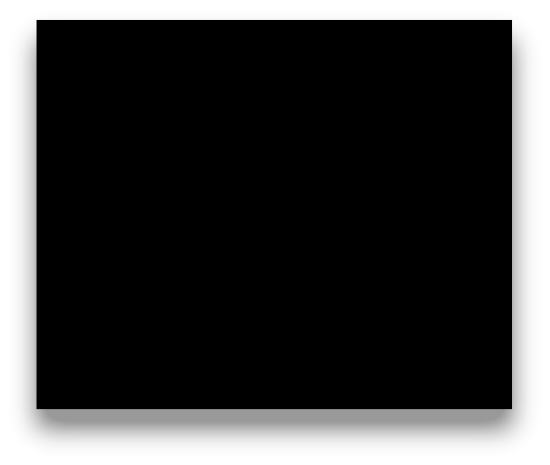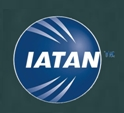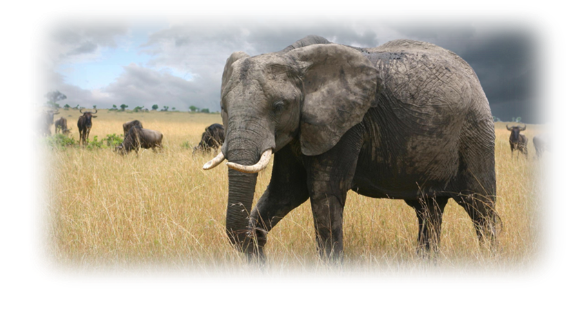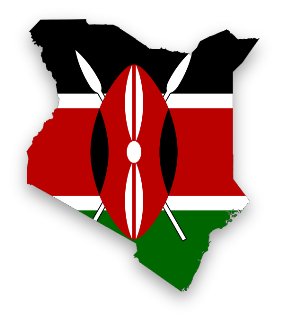


I am standing on the banks of a dry river bed in northern Kenya, Nginyang specifically, with my wife and our friend, Jacob Beles. Jacob is a lay pastor, currently completing his education in theology in Uganda. We are standing at the banks of this riverbed looking across at a grove of trees, remembering an event that took place 17 years ago. Jacob is reminding us of the group of people, mostly teenagers, who descended on this place and camped in this riverbed in order to build the church that stands behind us, the Pokot Worship Center. A few moments ago we viewed the hand prints in the cement foundation placed there by those who built it. It is a special place for me personally because my hand print and that of my daughter, two nieces and my father are here. We were part of a team that helped erect this building and bring medical care to people in this remote place, at least for a few short days.
I have often asked myself why we do such things as short term missions. It may mean something to us, but it does it mean anything to those that we are trying to help? Aren't we really just scratching the surface, perhaps annoying people more than actually helping? Wouldn't our money be better spent simply sending it to a mission field and trusting that it will be used wisely on things that really matter? I think these are important questions to ask. They are questions I still wrestle with. Today, I will have the chance to hear from one who knows personally the answer from the perspective of the recipients of our efforts.
Jacob is recalling for us the stories of people who came because they heard that Mzungu doctors and dentists were here. (Mzungu or Azungu is the name in Swahili used to mean, white person, aka honored guest, aka stranger, aka strange looking white dude). He tells us that people came from all over, from as far as 85 kms away in order to get some help with medical problems.
He recounts the flash flood that occurred while we camped in the riverbed and the need for our group to be evacuated through the branches of an overhanging tree as the floodwaters rose around us. We asked him if he remembered a young man who rafted the floodwaters on an air mattress while the rest of us evacuated our tents and luggage. "Yes," Jacob recalls. "I remember that young man. In fact, there was a certain old man who was standing there who said, 'this young man is drowning. Now who is going to pay for him?'" We laughed together as we told Jacob that the young man is now our son-
Jacob told the story of woman who came to our makeshift clinic under the trees who had a growth on her neck. I remembered the woman. I remembered the surgery I performed on her to remove the grapefruit sized lipoma from the back of her neck under local anesthesia. I remember her desperation.
Now I have the chance to hear what I did not know until today.
She was probably in her 50's, with the weathered skin of a Pokot, living as she did in the sun and intense heat for so many hours of her life. She was married, a mother in this area, living in deep poverty, the semi-
Who knows what the significance of such a mass on the neck means in Pokot culture? A curse? A blemish? A focus for ridicule or unwanted attention?
All I really know is how desperately she wanted it removed.
She came to our clinic to have the thing attended to. She had been to the government clinic before, saved her money enough to make the bus ride to the hospital and had it checked on. The surgery was scheduled, but for a couple of weeks in the future. She couldn't stay. She had spent her money. So she returned to her home and started saving again.
She returned to the government clinic, but the doctors weren't there that day. She went back home and saved her money. This cycle continued for who knows how long, likely for years. Meanwhile, the mass grew. Finally, she heard of a team of Mzungus who would be coming to put up a church and to see some patients. Surely this was her chance.
She sat in line with the other patients that first day and waited until it was her turn. Unfortunately, the doctors could only see 100 patients each per day, so some were sent home with a card asking them to return the following day and they would be seen. Many came back. This woman was seen by Dr. Jack Hoehne, an excellent family doctor from Walla Walla who has years of experience working in Africa. When Jack saw the mass, he told her, "we really don't have the equipment to take care of this here. You will need to go to the government clinic to have this removed." Likely Jack didn't know about her story. Either way, with the limitations of our equipment and facilities, it was the safe call.
The following day, for whatever reason, the woman came back and got into line again. She made her way to see the doctors again on this day. She got back into Dr. Hoehne's line. "Didn't I see you yesterday?" he asked. "As I told you, we can't take care of this problem here. You will need to have it removed at the government clinic. We can't help you here." The woman went home again.
Who knows what thoughts must find their way into the mind of a person in these circumstances? The message was clear and unequivocal. It wasn't a language barrier. There was something else that drove this woman. For all of those reasons which we only imagine, the woman returned the following day. Perhaps the doctor would change his mind. Perhaps he would see things differently. Perhaps he would see her desperation and be willing to take a chance. She got into my line at the clinic that day.
I looked at the lipoma. It was a big one, but I had the tools, I had the local anesthetic. It wasn't out of the question. I would be taking some risk, but I could see something in the face of this woman. I couldn't help but feel compassion for her situation. I told her there would be risks. I described what I would need to do. She could be my first patient the following day and have it taken care of. She agreed. She would be there early the following morning. We would be ready for her.
Jack came to me later that day and asked me, "Did you see that woman with the lipoma on her neck?" I told Jack that I had seen her and that I told her we would remove the mass the following morning. "I told her she needed to go to the government clinic," he shook his head. I laughed. Sorry, I didn't know. I smiled at the woman's tenacity.
The following morning I took out the mass with the best equipment we had.
Blue tarps wrapped around poles stuck in the sand formed our operating room.
Ambient light plus a flashlight gave us visualization. Two teenagers acted as surgical assistants. She had so little subcutaneous fat that the mass shelled out fairly easily. The surgery was the easy part. I sutured the skin together and wondered what to do next. One can't easily place a pressure dressing on the neck. Wrapping a gauze wrap around the neck does some unwanted things to the carotid arteries and the trachea. I used my imagination and placed a dressing on the neck, then asked the woman to return the next day to have things checked.
The next day, the empty space where the mass had been had filled with blood.
I considered what to do. I decided to evacuate the blood and sew the wound together again. I placed another dressing and asked her to return once more the next day, the day of our departure. On that morning, a collection of clear fluid had formed, but could be controlled with a dressing. I asked her to have it checked at the local clinic in a week. I gave her some antibiotics. Then we were gone.
Today, I am for the first time hearing the rest of the story. One who penetrates this remote place cannot fully understand what such an act means to the person who receives the care. For us providing it, removal of a lump on someone's neck is a simple act of kindness, arguably foolhardy in such a place, but significant to the recipient. The woman healed beautifully, Jacob recalls. I think there is an extra measure of grace for such people.
A few weeks later, a group of visitors came to do some follow up work at the building site. The word spread in the community that Mzungus had come. The husband of the patient with the lipoma heard this news, and certain that it must be the previous group, returned to Nginyang with a gift. "Where is the one who cured my wife?" he asked of the local leadership. "I have a gift I want to give him. I brought him this milk from my cow, and I want to see him drink it." He was referred to a white missionary by the name of Keith Wallace. Keith, bless him, is not a doctor, but was aware of and involved in our building project. We never invited him to do any surgeries with us though. The husband brought his gift, a large basin of warm milk. When he saw Keith, he exclaimed, "Ah, no, this is not the right mzungu. Where is the one who cured my wife?" The team had to explain that I wasn't there.
The man pondered what to do. "Here," he said to Keith. "You take this gift of milk to that man. You must know where he stays, since you are also a mzungu." Keith was persuaded to put the milk in the back of his truck to take to me.
I'll admit, I was touched by this story. More than this, the woman's story was multiplied in many other ways. The presence of the church that we built opened the way for a water project to be developed, with the church serving as custodian for the water supply for the community. The government leveraged some money to develop the water system for the town of Nginyang.
The presence of water reduced the nomadic movement of the tribe, caused people to settle down, increased trade and created community. Children were able to attend school, since they weren't gone as much. People's level of education and ultimately income levels began to rise over subsequent years, lifting them from abject poverty. People were inspired to live differently.
They stopped fighting over scant resources. Cattle rustling in the area ceased. Peace prevailed.
It started with a group of Americans, mostly teenagers, with the crazy idea of building a church in the desert and providing a few days' worth of free medical and dental care. We haven't heard the end of the story. We are using its inspiration to build peace in Kapedo.








| Group Request |
| Airline Seats and Check In |
| Group Travel |